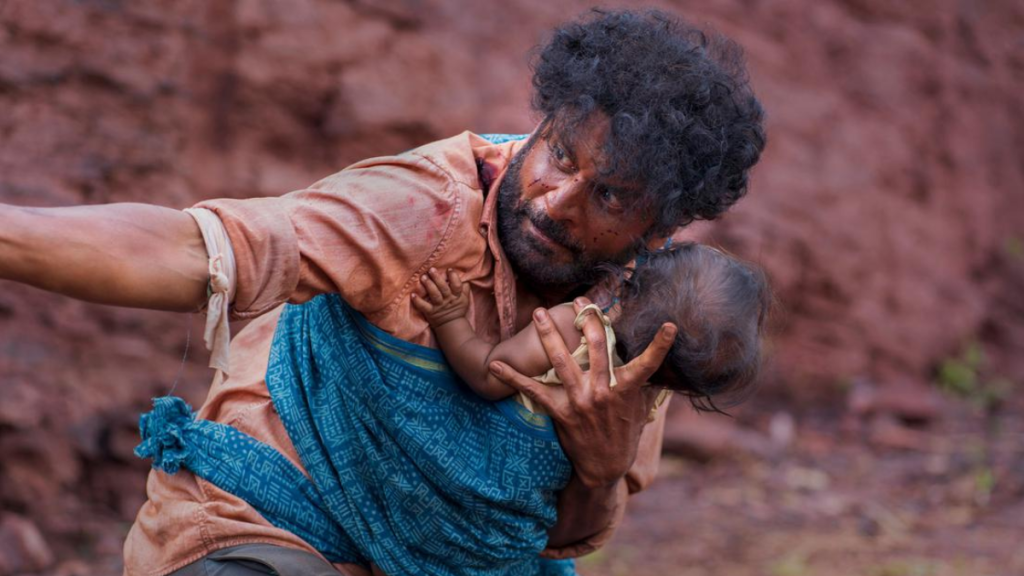The 2023 Indian Hindi-language thriller film Joram has kept the audiences hooked. Director Devashish Makhija weaves a complex web of mystery, violence, and moral values. As the story unfolds, the audience gets to see the lives of the main characters—Dasru, played with intense sincerity by Manoj Bajpayee, and the relentless police inspector Ratnakar, portrayed by Mohammad Zeeshan Ayyub.
Dasru lives with his wife, Vaano, and infant daughter, Joram, in a small tribal village in Jharkhand. Due to socio-political tensions in the community, he is bound to leave his home and seek refuge in Mumbai. However, after his wife is killed, he has to run from his past with his three-month-old daughter.
Joram is set against the backdrop of Jharkhand’s tribal communities dealing with issues of displacement, exploitation, and modernization. The ending of Joram is both poignant and thought-provoking.
Why does Phulo Karma want Dasru dead?
Phulo Karma (Smita Tambe) is a dominating tribal politician who is driven by a personal vendetta against Dasru and manipulates the volatile situation to further her political agenda. The film has moments where it leaves viewers on the edge of their seats. The thin line between activism and exploitation is clearly shown when Phulo tries to kill Dasru for her political gain. She takes advantage of her power dynamics with Dasru and forces him to be on the run.
After Vaano is mysteriously killed, the media brands him as a terrorist. Following this, Dasru is forced into a relentless chase for survival. The intricate plot weaves through the alleys of Mumbai, showcasing the city’s harsh realities.
The final scenes bring Dasru back to his roots, his tribal village in Jharkhand. He comes back in hopes of seeking refuge from the chaos that he dealt with in Mumbai. However, returning home does not offer the peace he longs for. He soon realizes that he has been followed back, and the shadows of his past continue to haunt him. The film shows flashbacks to show Dasru’s journey from a confused member of a naxal organization to a construction worker in Mumbai.
Inspector Ratnakar, the determined cop chasing Dasru, adds another layer of complexity to the narrative. As his journey is similar to Dasru’s, the audience is shown a clear vision of law enforcement’s role in influencing systemic injustices. Mohammad Zeeshan Ayyub’s Ratnakar brings depth to the story, blurring the lines between antagonist and antihero.
How does the Manoj Bajpayee movie end?
The climax unfolds in a mine, symbolizing the depths of despair and conflict that the characters grapple with. The encounter between Dasru, Ratnakar, and Phulo Karma is a visceral exploration of power, justice, and the cost of survival in a society plagued by corruption and inequality.
In conclusion, Joram leaves the audience with questions about justice, morality, and the repeating nature of violence. Makhija’s film not only serves as a thrilling experience but also as a searing visual on the socio-political situation of modern India. As the credits roll, viewers are left to ponder the consequences of displacement, the exploitation of tribal people, and the impact of corruption on the lives of those caught in the crossfire.
Joram also stands as a testament to Makhija’s storytelling prowess. It uses a strong narrative and compelling characters to shed light on the harsh truth marginalized communities face, all while keeping the audience on the edge of their seats until the final frame.










